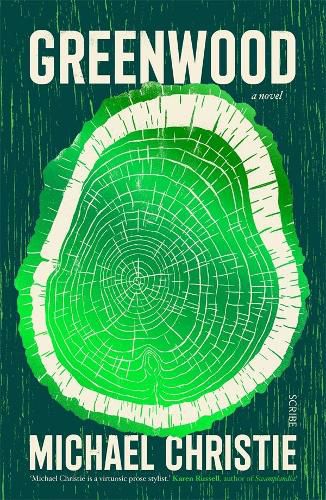Paperback, 512 pages
en-Latn-CA language
Published Jan. 1, 2020 by Scribe.

Paperback, 512 pages
en-Latn-CA language
Published Jan. 1, 2020 by Scribe.
2038. On a remote island off the Pacific coast of British Columbia stands the Greenwood Arboreal Cathedral, one of the world’s last forests. Wealthy tourists flock from all corners of the dust-choked globe to see the spectacle and remember what once was. But even as they breathe in the fresh air and pose for photographs amidst the greenery, guide Jake knows that the forest is dying, though her bosses won’t admit it.
1908. Two passenger locomotives meet head-on. The only survivors are two young boys, who take refuge in a trapper’s cabin in a forest on the edge of town. In twenty-six years, one of them, now a recluse, will find an abandoned baby — another child of Greenwood — setting off a series of events that will change the course of his life, and the lives of those around him.
Structure like the rings of a tree, this remarkable …
2038. On a remote island off the Pacific coast of British Columbia stands the Greenwood Arboreal Cathedral, one of the world’s last forests. Wealthy tourists flock from all corners of the dust-choked globe to see the spectacle and remember what once was. But even as they breathe in the fresh air and pose for photographs amidst the greenery, guide Jake knows that the forest is dying, though her bosses won’t admit it.
1908. Two passenger locomotives meet head-on. The only survivors are two young boys, who take refuge in a trapper’s cabin in a forest on the edge of town. In twenty-six years, one of them, now a recluse, will find an abandoned baby — another child of Greenwood — setting off a series of events that will change the course of his life, and the lives of those around him.
Structure like the rings of a tree, this remarkable novel moves from the future to the present to the past, and back again, to tell the story of one family and their enduring connection to the place that brought them together.